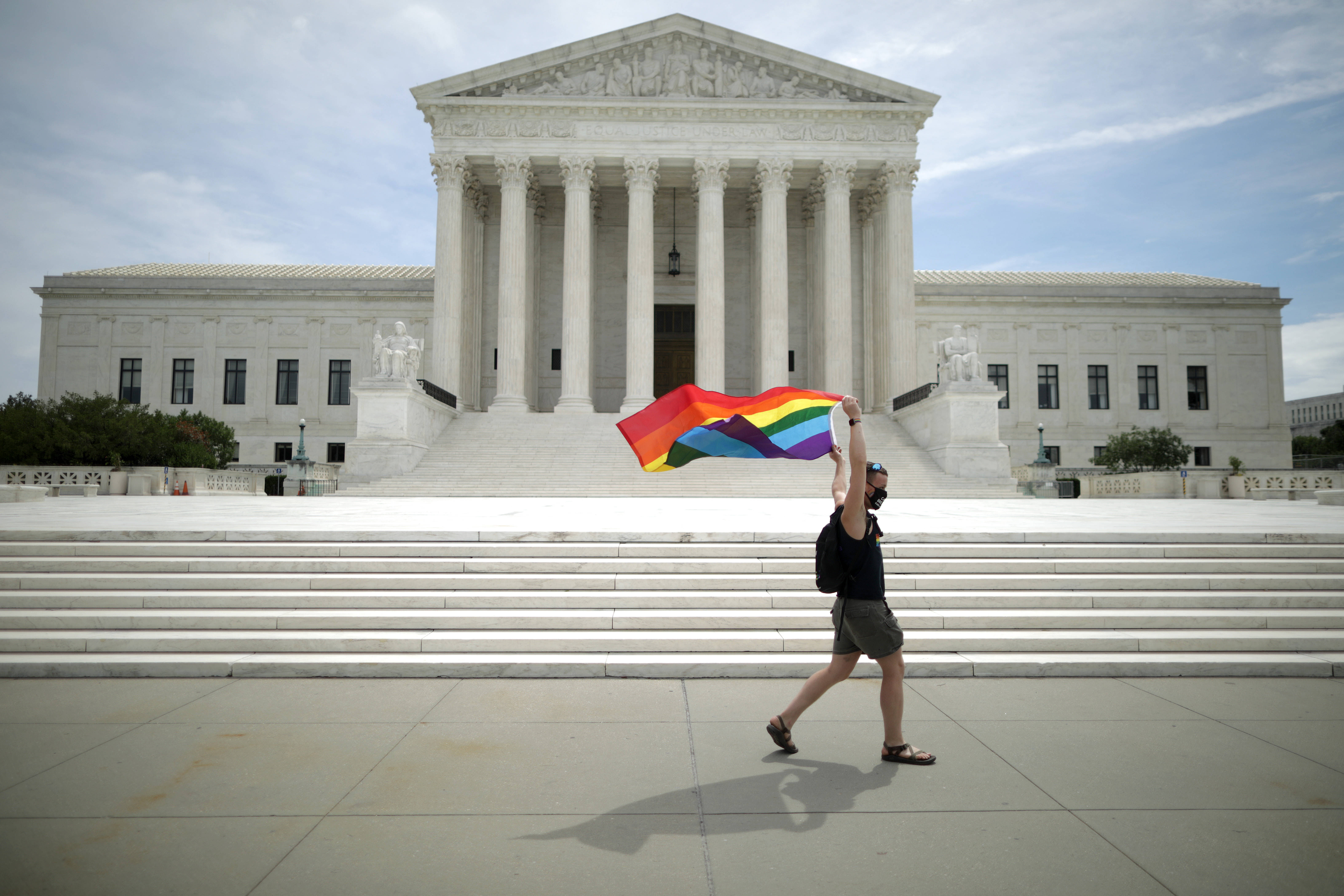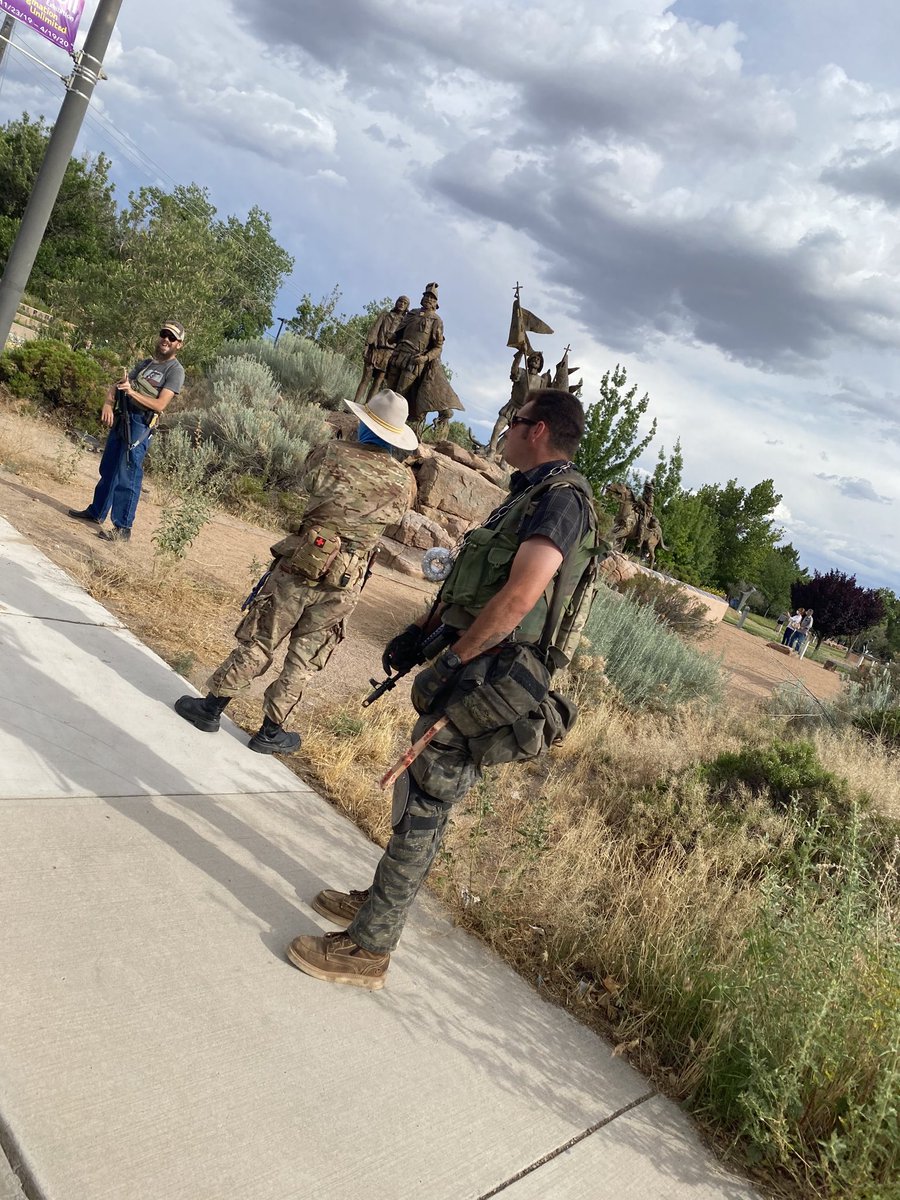
Supreme Court Decision Gives Landmark Protections to LGBT Workers
VOX
- On Monday, the Supreme Court issued a major civil rights decision, ruling 6-3 that LGBTQ individuals are protected by Title VII of the Civil Rights Act of 1964. [NYT / Adam Liptak]
-
- The act prohibits workplace discrimination on the basis of “race, color, religion, sex, or national origin,” and Monday’s ruling affirms that those protections extend to an employee’s sexual orientation or gender identity. [Vox / Ian Millhiser]
-
- The decision is a big deal: As Slate’s Mark Joseph Stern tweeted, it is “by a mile, the biggest legal victory transgender Americans have won in the history of the nation.” [Twitter / Mark Joseph Stern]
-
- Justice Neil Gorsuch, a conservative Trump appointee, joined the liberal wing of the Court along with Chief Justice John Roberts, leaving justices Kavanaugh, Alito, and Thomas in the minority. Gorsuch also wrote the decision. [Politico / Josh Gerstein and Rebecca Rainey]

- The Court combined three cases in Monday’s Bostock v. Clayton County decision. In addition to Bostock, the ruling also addresses Altitude Express Inc. v. Zarda and R.G. & G.R. Harris Funeral Homes v. EEOC. [Daily Beast / Jay Michaelson]
-
- Aimee Stephens, the plaintiff in Harris Funeral Homes, sued her former employer after she was fired in 2013 for telling her boss that she planned to transition to female. Stephens died last month of kidney failure, but her case, the first major trans rights case to be heard before the Supreme Court, will impact the lives of millions of trans people in the US. [Vox / Katelyn Burns]
-
- In addition to issuing a decision in Bostock v. Clayton County, the Court turned down several potential cases on Monday. Justices decided against accepting 10 different cases relating to the Second Amendment. [CNN / Jamie Ehrlich]
-
- They also rebuffed Trump’s Justice Department, which had requested that the Court consider its appeal regarding a sanctuary law in California. Previously, the Ninth Circuit Court of Appeals upheld the law, which prohibits local law enforcement from informing federal agents when immigrants are set to be released from prison. [NBC News / Pete Williams]
It’s a sea change in legal protections for gay rights, one that matches up with public opinion.
A June CBS News poll found that 82 percent of Americans say that gay, lesbian and bisexual people should be protected under civil rights law, including 71 percent of Republicans. Approval of same-sex marriage and gay rights has grown rapidly in America over the past decade.
Former city council candidate arrested after man is shot at New Mexico protest with militia group
Police in Albuquerque on Tuesday announced they had arrested a former city council candidate who they say shot and wounded a man at a protest that grew contentious as demonstrators clashed with a militia group.
The Monday night episode — which erupted after a crowd tried to tear down a monument to Spanish conquistador Juan de Oñate — appeared to reflect a phenomenon that federal and state officials have long warned about: Protests over racial injustice, such as the ones currently roiling American cities, can draw a medley of fringe actors or groups with their own ideological agendas.
In the hours leading up to the violence Monday, protesters faced off with members of an armed group that calls itself the New Mexico Civil Guard and counterprotesters toting “All lives matter” signs. Several members of the armed group told The Washington Post they were worried that tearing down the statue would beget widespread destruction of property.
The members said they did not know the alleged shooter or the victim and cast themselves as attempting to prevent violence from erupting at a tense scene. But state officials denounced their presence, which they said was meant to intimidate protesters.
“The heavily armed individuals who flaunted themselves at the protest, calling themselves a ‘civil guard,’ were there for one reason: To menace protesters, to present an unsanctioned show of unregulated force,” New Mexico Gov. Michelle Lujan Grisham (D) said in a statement.
Experts say contact tracing is the best tool we've got until there’s a vaccine.
“Contact tracing failed to stanch the first wave of coronavirus infections, and today’s far more extensive undertaking will require 100,000 or more trained tracers to delve into strangers’ personal lives and persuade even some without symptoms to stay home. Health departments in many of the worst-affected communities are way behind in hiring and training those people. The effort may also be hobbled by the long-standing distrust among minorities of public health officials, as well as worries about promising new technologies that pit privacy against the public good," Frances Stead Sellers and Ben Guarino report. "Still, as states relax restrictions, public health experts say wide-scale contact tracing is the price that must be paid to reopen safely without reverting to the blanket shutdowns that put nearly 40 million Americans out of work. Time is of the essence, they say, taking advantage of the drop in cases resulting from the shutdowns. … Across the country, the efforts to ramp up are vast and varied. The University of California at San Francisco has been tapped by the state to create a Pandemic Workforce Training Academy that will train as many as 3,000 people for the state’s 58 county health departments … In Rhode Island, Gov. Gina Raimondo (D) unveiled a free voluntary app that health officials hope will prove more reliable than people’s memories in re-creating their recent contacts.”
Today's coronavirus snapshot, as of 11 am ET Monday:
- 2,094,205 confirmed US cases (7,944,236 worldwide)
- 115,732 confirmed US deaths (434,060 worldwide)
- 23,535,104 tests conducted in the US (71,535 tests per million people)
—Dylan |
|
|
|
The news from America's emerging Covid-19 hot spots did not get any better over the weekend. Florida hit a record high in new cases on Saturday. Texas just missed doing the same, but the direction in that state and several others is clear: Cases are going up.
An ICU nurse in Arizona warned their wards are filling up with "the sickest patients I've ever taken care of," according to this Facebook post shared by Reuters reporter Yahaira Jacquez. "I barely see my family because I'm scared to give it to them."
Current Covid-19 hospitalizations in the state topped 1,400 on Saturday, nearly doubled from a month ago. More coronavirus patients are in the ICU there than ever before. Arkansas, Texas, and North Carolina also saw new highs in Covid-19 hospitalizations over the weekend. Red flags have been raised all over the country.
|
|
People should think about Covid-19 risk in four dimensions: distance to other people, environment, activity, and time spent together. More distance is better, outdoors is safer than indoors, activities that involve lots of exhaling (like singing or shouting) are more dangerous than quieter ones, and a longer time spent with others is more dangerous than a shorter time.
Perhaps a helpful way to think about the risk is this: Imagine everyone is smoking, as Ed Yong suggested in the Atlantic, and you’d like to avoid inhaling as much smoke as possible. In a cramped indoor space, that smoke is going to get dense and heavy fast. If the windows are open, some of that smoke will blow away. If fewer people are in the space, less smoke will accumulate, and it might not waft over to you if you’re standing far enough away. But spend a lot of time in an enclosed space with those people, and the smoke grows denser.
The denser the smoke, the more likely it is to affect you. It’s the same with this virus: The more of it you inhale, the more likely you are to get sick.
Americans have done a good job of social distancing so far: according to a recent AP/NORC poll, 90 percent of people say they are wearing masks, as of early June, up from 78 percent in early April.
But while most people are also still avoiding crowded places and contact with high-risk people, adherence to those preventive measures is starting to dip a bit, according to the survey. That is worrisome. We have to stay vigilant.
That doesn't mean eternal lockdown. It's simply unrealistic to shut down society for six months or a year and, besides, there is of course a real and measurable cost to people's financial and physical health. But the tradeoff for some resumption of normal life should be tolerating a few impositions in order to protect ourselves and others.
The evidence is pretty persuasive that wearing masks reduces Covid-19's spread, as Lois Parsley covered for Vox. As Vox's German Lopez and Amanda Northrop reported, we should start thinking about our behavior in terms of harm reduction. Hanging at home with your housemates is, of course, the safest option. But outdoor activities can also be thought of as a moderate risk, especially with some easy precautions like wearing a mask and washing your hands.
The government can of course do more to make reopening safer. It can increase funding for contact tracing, it can be cautious in relaxing its social distancing guidance, it could even provide more money to help reduce the financial pain of the crisis and relieve some of the urgency about reopening.
States and the feds could also do more to protect older people in nursing homes, where so many lives have already been lost due to a poor response. Despite the federal government's promises to send more protective gear to those facilities, the workers at nursing homes report much of what they have received from the feds is unusable, according to a new Wall Street Journal report. That needs to be fixed.
But we can't depend on the government entirely. Reopening is upon us, and it's the responsibility of each person to do what we can, for our sake and everyone's, to be safe and prevent Covid-19 from growing out of control. The early signs are troubling. There is no time to waste. |
|
|
|
|


